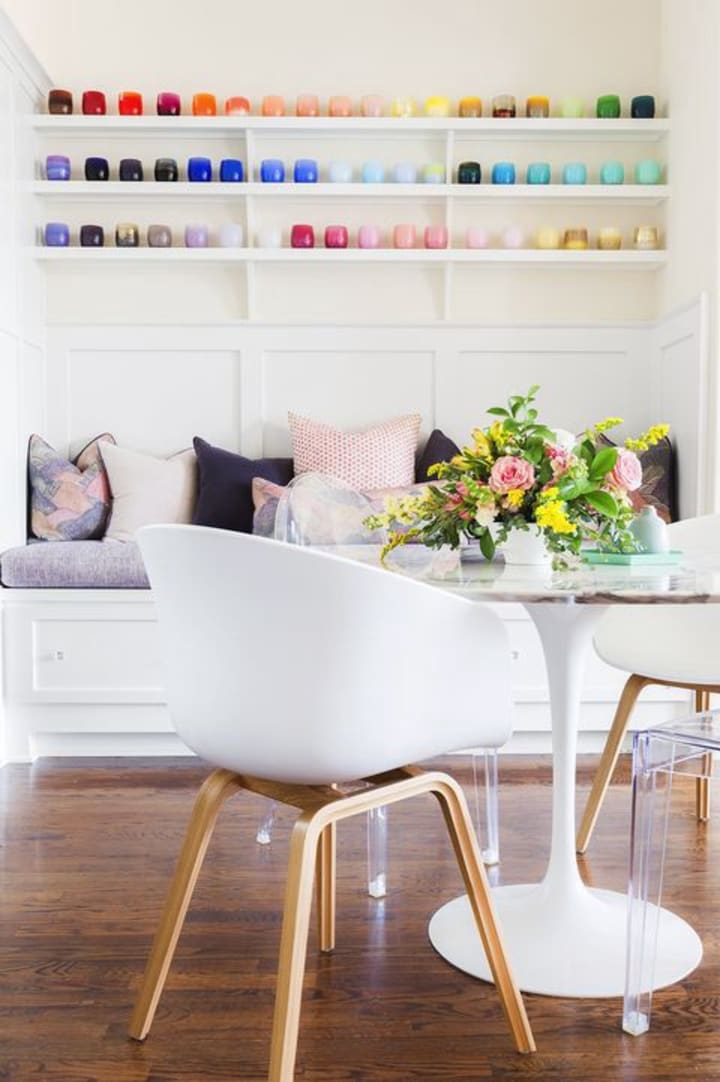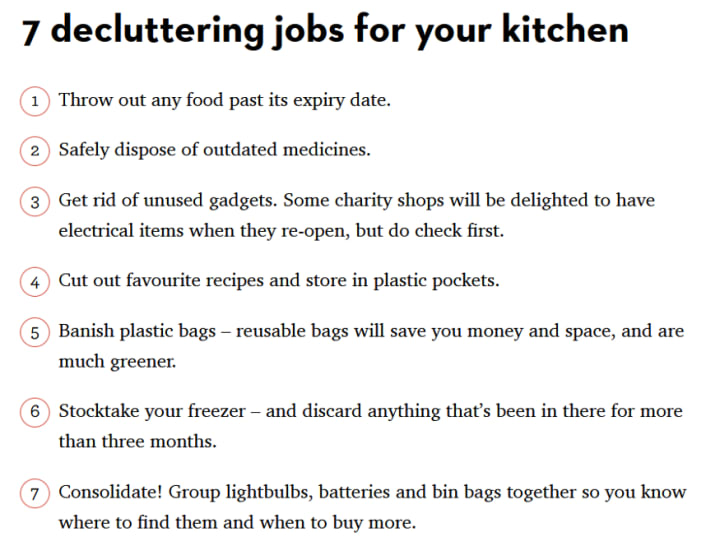
“Cleanliness is next to godliness” was bandied about a lot when I was a kid. Usually at me — I’d never seen the appeal of perfectly-placed candles; I was far too busy playing in the mud (and traipsing it around the kitchen).

Growing up, moving out, getting my own place — the ‘problem’ persisted. Sure, I’ll do the dishes and bins — sweep up if the floor gets grotty, with varying degrees of consistency. But scrubbing the oven? Organising my bookcase? Jog on, luvvy.
Upon initial inspection, it appears that I may be ‘messy’. This is always presented to me as an issue (by my mum, usually). If you’re in a similar boat — hey! What if our mess isn’t a problem at all?
Now, being organised does show a genuine personal benefit: a 2013 study by Kathleen Vohs, Ph.D., found that working in an orderly room encouraged behaviors such as generosity and healthy eating.
And — let’s be real — there’s nothing like returning to a pristine room after a hard day’s work. As Seth Gillihan puts it — opening an organised closet “feels like someone just gave me a gift”.
However, there’s a darker side of this standard: cleanliness and organization are presented as an ideal; as a display of a put-together individual. Check out any instagram or online celeb’s home; I guarantee it’s spotless.
Advertisements and magazines have white-walled living rooms; pristinely-placed sofas; not a single dog hair or kid’s toy out of place. All of this social messaging has consistently told us that cleanliness and beauty are a) desirable, and b) purchasable.
Notice that — in many of the online publications touting ‘the best habits for staying tidy’ — there’s always quotes from company founders?
“Tackling clutter is crucial to making your home work best for you and your family,” says Patty McNease, vice president of brand marketing for Homes.com.
“I find the easiest hack to keep a home organized is to have less stuff…Not only does this make it easier to keep your home organized, it also saves you money and time!” says Ashley Feinstein Gerstly, founder of Fiscal Femme.
The irony of this industrial pressure from an $8-billion market— is that the stress this creates is regularly quoted by the industry itself:
A recent survey of homeowners showed that 44% of us experience ‘mess-stress’ at least weekly and 72% of ‘naturally tidy’ people have experienced stress from an untidy home over the pandemic*
*Survey on behalf of Serenely Sorted
Serenely Sorted is, of course, another segment of that multi-billion dollar industry that actively presents messiness as a choice. Testimonials cry about how the choice was life-changing:

In the same way the beauty market imposes unrealistic ideals upon young men and women, the cleanliness industry asks a hell of a lot from their over-stressed patrons.
Good Housekeeping’s 31 Decluttering Tips from a professional organiser splits the house into 6 segments (kitchen, bathroom, paperwork, etc). And — for each segment — there’s a numbered to-do list:

And this is just 1 segment of 6! Forget doing the whole list in one day.
Or, you could constantly ‘declutter’ between hours at work — do you fancy spending the few hours in between work and bedtime “[cutting] out favourite recipes and [storing them] in plastic pockets?” No? Weird. No wonder 72% of ‘naturally tidy’ adults are stressed out about an ‘unclean’ flat — keeping a lived-in area pristine is an incredibly demanding time sink, even without pets or kids!
This is also ignoring the fact that you’ll need to declutter reasonably regularly. The ‘industry gurus’ sit there and say oh, don’t worry — eventually it’ll become automatic. But that doesn’t change the fact that constant tidying is a drain on a limited source of time and energy.
Let’s face it: they’re stressed because messiness has always been viewed as a character flaw. The threat of being seen as a ‘slob’ is deep-rooted in ideas of untidiness, cropping up in the late 1800s from the Irish term for a muddy slab of land.
This loops back round for us less clean folk — as we look around us and fret what others must think. But your living area is yours. Attempting to keep up with the Jones’ is a source of stress that — honestly? — none of us need right now.
Also, remember that 2013 study by Kathleen Vohs? Well, that same study also presented benefit to our clutter.
Working in an apparently ‘messy’ environment actually led to greater creativity. The researchers believed that doing work in a clean and tidy space activates social norms encouraging people to do what is expected of them (hence the higher levels of generosity for the tidy-inclined).
Existing in a messy space, however, relaxes that need: this allows people to break free of social norms and expectations. As such, participants in the messy room consistently discovered and implemented more creative and innovative ideas than those in the ‘organised’ clean room.
So, for us of the creative disposition (hi there!) —leave the over-obsessive bathroom-scrubbing to your stuffy nan, and take pride in your personal chaos.
About the Creator
Rk.ke
Follow the Omnishambles






Comments
There are no comments for this story
Be the first to respond and start the conversation.